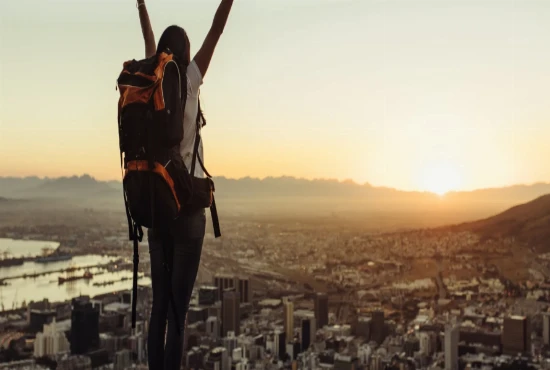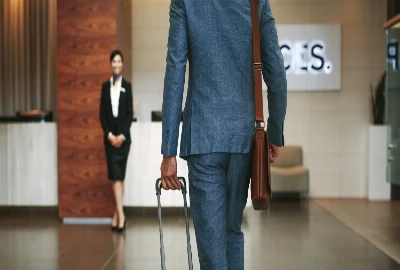Solo travel is exhilarating, liberating, and sometimes, just a little terrifying. There’s something about wandering unfamiliar streets, unsure of the next turn, that makes the experience both nerve-wracking and magical. But what if I told you that getting lost isn’t just an accident—it’s the best part of the journey?
The Unexpected Joy of Getting Lost
Most of us meticulously plan our trips, pinning must-see locations on Google maps and setting reminders for museum hours. But the best moments often happen when you lose track of your plans. Suddenly, you're on a quiet street in a foreign city, stumbling upon a hidden café that serves the best pastry you’ve ever tasted. Or you find yourself on a detour through a lively market, learning more about local culture than any guidebook could teach you.
Getting lost forces you to slow down, look around, and truly immerse yourself in your surroundings. It’s an invitation to be present, to let curiosity guide you rather than a GPS.
Embracing the Uncertainty
For many, the idea of being lost—especially in a foreign country—sounds like a nightmare. But it’s in those unplanned moments that real adventure begins.
Picture this: You take the wrong bus in Thailand and end up in a village that’s not on any travel itinerary. The locals welcome you with warm smiles and invite you to try homemade dishes you wouldn’t have found in a tourist-packed restaurant. Or maybe you’re in Spain, following the sound of music through narrow alleyways, only to discover a spontaneous flamenco performance in a tucked-away courtyard.
These are the moments that define adventure travel. They’re the stories you’ll tell for years, the ones that make you feel alive.
Building Confidence & Problem-Solving Skills
Getting lost is a confidence booster disguised as an inconvenience. At first, panic might creep in. But then you remember—you’ve got this. You ask for directions, use your instincts, and sometimes, just follow the most interesting street. And guess what? You figure it out. Every time you navigate an unfamiliar place, you prove to yourself that you’re capable, resourceful, and stronger than you thought.
Problem-solving becomes second nature. When things don’t go as planned, you learn to adapt. Maybe your phone dies and you have to rely on an old-fashioned paper map. Maybe no one speaks your language, so you communicate with gestures and smiles. Each challenge teaches you resilience and self-trust—qualities that extend far beyond travel.
Discovering Hidden Gems
Tourist hotspots are great, but have you ever found a place so special that you felt like you had it all to yourself? Those moments often happen when you stray from the main path.
Wandering aimlessly through a city might lead you to a quiet bookstore where the owner offers you tea and recommendations. A missed turn on a hike could bring you to an untouched waterfall with no crowds in sight. The beauty of solo travel is that no one is rushing you—you have the freedom to pause, explore, and take in these serendipitous finds.
The Role of Fear in Growth
Fear is a natural part of solo travel, especially for women. There’s always a level of caution that needs to be in place. But there’s a difference between reckless wandering and mindful exploration. By taking small risks—like choosing a random street to explore or trusting your instincts when making decisions—you step outside your comfort zone in a way that’s both thrilling and safe.
Many solo female travel stories highlight how getting lost led to acts of kindness from strangers, new friendships, and unforgettable experiences. It’s a reminder that the world, despite its challenges, is filled with more good than bad.
The Lessons You Take Home
Getting lost teaches you to embrace the unknown—not just in travel, but in life. It reminds you that not everything needs a plan, that spontaneity often leads to the best memories, and that you are capable of handling whatever comes your way.
When you return home, you’ll notice a shift in how you approach uncertainty. That job opportunity in a new city? Less intimidating. Trying something new? Exciting instead of scary. The mindset you develop while traveling stays with you long after your trip ends.
Conclusion: Find Yourself by Losing Yourself
So, the next time you find yourself in an unfamiliar place, take a deep breath and let go of the fear. Follow the winding streets, step into that unmarked café, and trust that wherever you end up is exactly where you’re meant to be. Because in the end, the best part of solo travel isn’t just about seeing new places—it’s about discovering new parts of yourself along the way.
If you're ready for your next great escape, remember: sometimes the best way to find yourself is to get a little lost. After all, self-discovery travel starts with embracing the unknown.










Leave a Reply